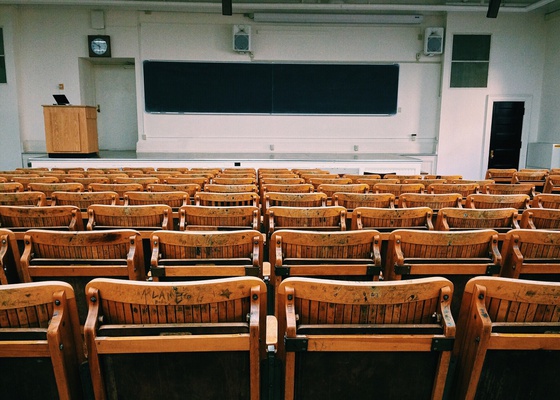Alternative Schools: What Are They and How Do They Affect College Admissions?

All students deserve an equal opportunity to succeed academically, but not all pupils learn in the same way. Alternative schools give kids with special needs or abilities a chance to achieve in a different educational environment. Continue reading to find out more about alternative schools and how they affect college applications.
While there are two sides to every story, one fact remains unmistakable: some public schools are superior to others.
Public schools in wealthier and suburban communities do significantly better on standardized tests than urban schools, and there is a considerable budget disparity as well. Although parents cannot always choose their school district, there are alternative options to explore if the public schools in a given location are inadequate. Alternative schools, such as boarding schools, magnet schools, and even homeschools, may provide pupils with superior educational possibilities, but they also come with their own set of obstacles.
Alternative school curriculums and credentials are more difficult for admissions authorities to comprehend when it comes to college applications. Alternative schools and their impact on the college admissions process for graduating seniors will be discussed in this article.
What is the definition of an Alternative School?
In terms of educational background, learning capacity, and academic interests, each kid is unique. Because academic accomplishment is impacted by more than just the curriculum, two students from the same class can obtain dramatically different scores on the same test. In-school elements such as the teacher's degree of education, the availability of resources, and the curriculum have an impact on a child's performance in school. Other factors, such as the student's financial situation, family environment, and personal or learning issues, all have an impact.
An alternative school is one that does not follow the traditional educational model. Another way to conceive of an alternative school is as a place where students who have struggled in traditional schools, frequently due to behavioral difficulties or learning challenges, can go.
Since the 1830s, when leaders of the Transcendentalist movement such as Bronson Alcott founded The Temple School, pupils have had an alternative education option. Montessori schools opened in the early 1900s, and magnet schools emerged in the 1960s, continuing the pattern. Alternative education today has a very broad definition. In fact, alternative education is defined differently in each of the 43 states and the District of Columbia.
Investigating the Various Types of Alternative Schools
Alternative schools can either be a part of the public education system or run independently. Charter schools and parochial schools are examples of private alternative schools. Public alternative schools are sometimes housed in the same buildings as traditional schools, and they are occasionally housed in institutions like hospitals or juvenile detention centers.
Alternative schools can also be found in the following locations:
- Boarding schools are educational institutions that provide students with the opportunity to live in residential educational facilities.
- Magnet schools are typically designed to attract students for specific subjects.
- Vocational centers, often with job training opportunities,
- Students can participate in independent study programs that allow them to study online or from a distance.
Though they were originally designed to help troublesome adolescents who were ill-equipped to flourish in a typical public-school setting, today’s alternative schools appeal to a wide variety of pupils. Many alternative schools have special education programs, for example, or have on-staff psychologists, social workers, and/or psychiatrists.
Alternative schools are designed to meet a wide range of needs; hence their student bodies are extremely diverse. The following are some of the students who are most likely to attend alternative schools:
- Students who are experiencing behavioral or emotional difficulties
- Students with unique skills or academic interests are encouraged to apply.
- Students with specific learning impairments or disorders
- Students with medical conditions that necessitate a more complete approach to treatment
- Students that are about to drop out or have already dropped out
- Students who have been suspended, expelled, or imprisoned are eligible to apply.
The General Education Development (GED) program is another alternative to these alternative high schools for high school students. A GED certificate is similar to a high school diploma, but students can complete more of the learning and studying on their own.
How Do Alternative Schools Handle Grading?
The alternative school curriculum varies widely from one school to the next, owing in large part to the student demographic. Private schools can set their own curriculum, whereas public schools may have some restrictions depending on where they derive the majority of their money. Alternative schools, on the other hand, are more likely to use different grading policies.
Many alternative schools have abandoned the traditional grading system in favor of narrative assessments supplied by teachers for each student. These evaluations give a summary of the work done in each class as well as a description of the s
Students collaborate with teachers to develop competency in a subject, which is not necessarily quantifiable using a standard grading system.
Schools that cater to pupils who have emotional or behavioral challenges frequently have a distinct appearance. Depending on the student demographic, these alternative schools may offer a wide range of programming alternatives, whether public, private, or part of a stand-alone institution.
What Are the Characteristics of Alternative School Transcripts?
Transcripts may seem very different because grading and assessment vary so much from one alternative school to the next. While it may not be as important while the child is in school, it is important for college admissions.
Transcripts from gradeless institutions, as you might anticipate, differ significantly from those from typical public schools. Instead of a letter grade, the school could be given a mastery rating on a scale ranging from poor to masterful. Another option is for teachers to write a short story about the student's abilities in disciplines such as writing, research, presentation skills, and study habits. Though this style is more difficult to discern at first glance, it is actually more instructive and provides a deeper, more in-depth look into each student.
Consider the following scenario: In their junior-year English class, two kids from two different schools each achieved a B+. You may anticipate them performing at a comparable level if you gave them a test based on a regular eleventh-grade English curriculum. As a result, you might be shocked to learn that the outcomes might be highly variable. Because every school and every teacher are distinct, every student's educational experience is unique. A letter grade alone is insufficient to determine a student's true abilities. Much more telling is a written narrative describing the student's mastery and academic proficiency.
The disadvantage of this technique is that some college admissions officers are less knowledgeable about it than others. When they are used to quantitative statistics like GPA, it may take them longer to verify the transcript and they may not have a context in which to grasp the material.
Alternative School Students' College Admissions Tips
As a student preparing for college, you will face a variety of obstacles. You must not only consider the institutions you want to attend, but you must also finish the application process for each one. If you attend an alternative school, the transition may be more difficult.
If you went to a school that doesn't employ a grading system, you should be aware that certain college admissions officers may disregard your application because they don't comprehend the context. Inquire with your school about converting your narrative assessments to letter grades. When admissions counsellors inquire, some institutions will give this as an alternative, so it's not a bad idea to inquire ahead of time to see whether it's an option.
Though some admissions examiners may be confused by your alternative school experience, you can use it to your advantage. In your application essay, consider writing about your experience and discussing how it changed you as a student and as a person. Admissions officers prefer students who have a strong sense of self and a desire to succeed. Instead of seeing your alternative school experience as a challenge, see it as a positive that sets you apart. It's all about telling your own story in the most positive light possible.
Every student needs an equal opportunity to study and achieve in school. It is up to the community when established public school systems fail.



Comments